"OCIMF continues its mission to improve safety and environmental performance in our sectors; there is much to do."
Director's Log

We have reviewed and revised the OCIMF objectives.
The broad messages are the same as before, but we have reduced them from six objectives to three: we Engage on issues that affect our industry; we Promote our publications and programmes; and we Advocate to encourage ratification and adoption of international conventions and adoption of OCIMF guidance, recommendations and best practices. The new objectives are up on our website and in the 2017 Annual Report, which was released in March.
An important information paper was also issued in March, which provides OCIMF guidance on the fitting and use of inert gas systems on all tankers carrying flammable cargoes. Based on 12 years of incident data concerning fires and explosions in non-inerted cargo tanks, it provides compelling evidence that safety is improved when these tankers are fitted with an inert gas system. I strongly recommend that you read it. It is available to download for free from the OCIMF website.
Finally, a moment of reflection. March was the 30th anniversary of the capsize of the Herald of Free Enterprise, when 193 lives were lost. It was a seminal moment in maritime safety history which ultimately resulted in the development of the International Safety Management Code, adopted into SOLAS in 1994. The shipping industry has made great strides to improve safety since that tragic event. OCIMF continues its mission to improve safety and environmental performance in our sectors; there is much to do.
Stay safe,

Andrew Cassels
Director OCIMF
Do you have news that you would like to share with our readers? If so email
New information paper: Inert Gas Systems

Inert Gas Systems: the use of inert gas for the carriage of flammable oil cargoes was released by OCIMF on 13 March.
It addresses the use of inert gas for the carriage of flammable oil cargoes.
The key points are as follows:
- OCIMF fully supports the IMO introduction of the mandatory fitting to new build tankers 8,000 DWT and over, of an inert gas system when carrying flammable cargoes.
- OCIMF encourages the fitting of inert gas systems to all new tankers carrying flammable oil cargoes, regardless of size.
- OCIMF encourages companies to consider retro-actively fitting inert gas systems to existing tankers carrying flammable oil cargoes, not already covered by the SOLAS inert gas requirements.
TMSA 3 release date
The third edition of the Tanker Management and Self Assessment – A Best Practice Guide will be available from Monday 10 April.
New in this third edition:
- Expanded best practice guidance to complement the KPIs.
- Revised best practice guidance to remove ambiguity and duplication.
- Streamlining and merging of elements to improve consistency and make conducting the self assessment easier.
- Removal of the option to mark KPIs as not applicable.
- Introduction of updated industry legislative requirements, including the Manila Amendments to the Maritime Labour Convention 2006, the Polar Code and the Ballast Water Management Convention.
- Revised Element 6 and 6A - Cargo, Ballast, Tank Cleaning, Bunkering, Mooring and Anchoring Operations, with additional KPIs and best practice guidance.
- Revised Element 10 – Environmental and Energy Management (previously Environmental Management) incorporates the OCIMF Energy Efficiency and Fuel Management paper that was a supplement to the second edition of TMSA 2.
- New element: Element 13 – Maritime Security.
See www.ocimf.org/SIRE/ for information on changes to the programme. To buy your copy of the guide visit www.witherbyseamanship.com/tanker-management-and-self-assessment-3-tmsa3.html.
First Regional Marine Forum announced
The North America Regional Marine Forum will take place in Tampa, Florida on 11 July 2017.
This is the first of the new-look Regional Marine Forums, which were previously called Regional Panels. The new format allows both OCIMF members and invited industry guests to come together to share best practices and initiatives, as well as to keep up-to-date with developments at OCIMF. A full agenda will be sent out with formal invitations.
Details of the South America, Europe and Africa, Middle East and Asia Pacific Regional Marine Forums will be sent to members in due course.
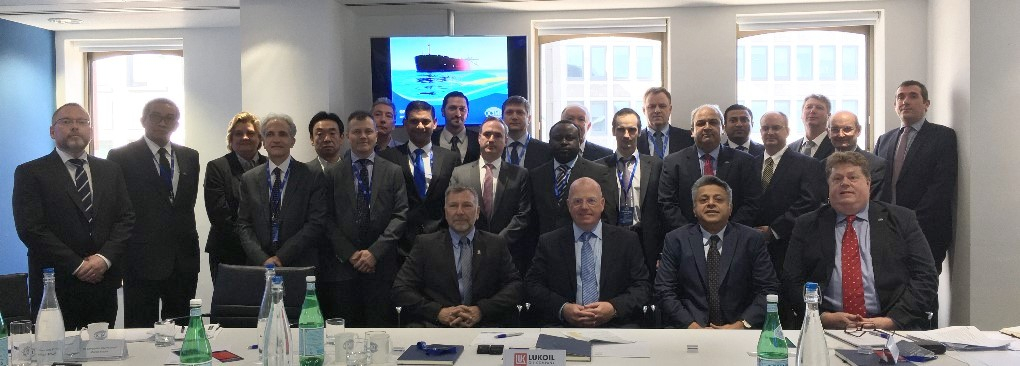
The General Purposes Committee (GPC) met at the OCIMF offices in London from 28–29 March.
OCIMF Annual Report
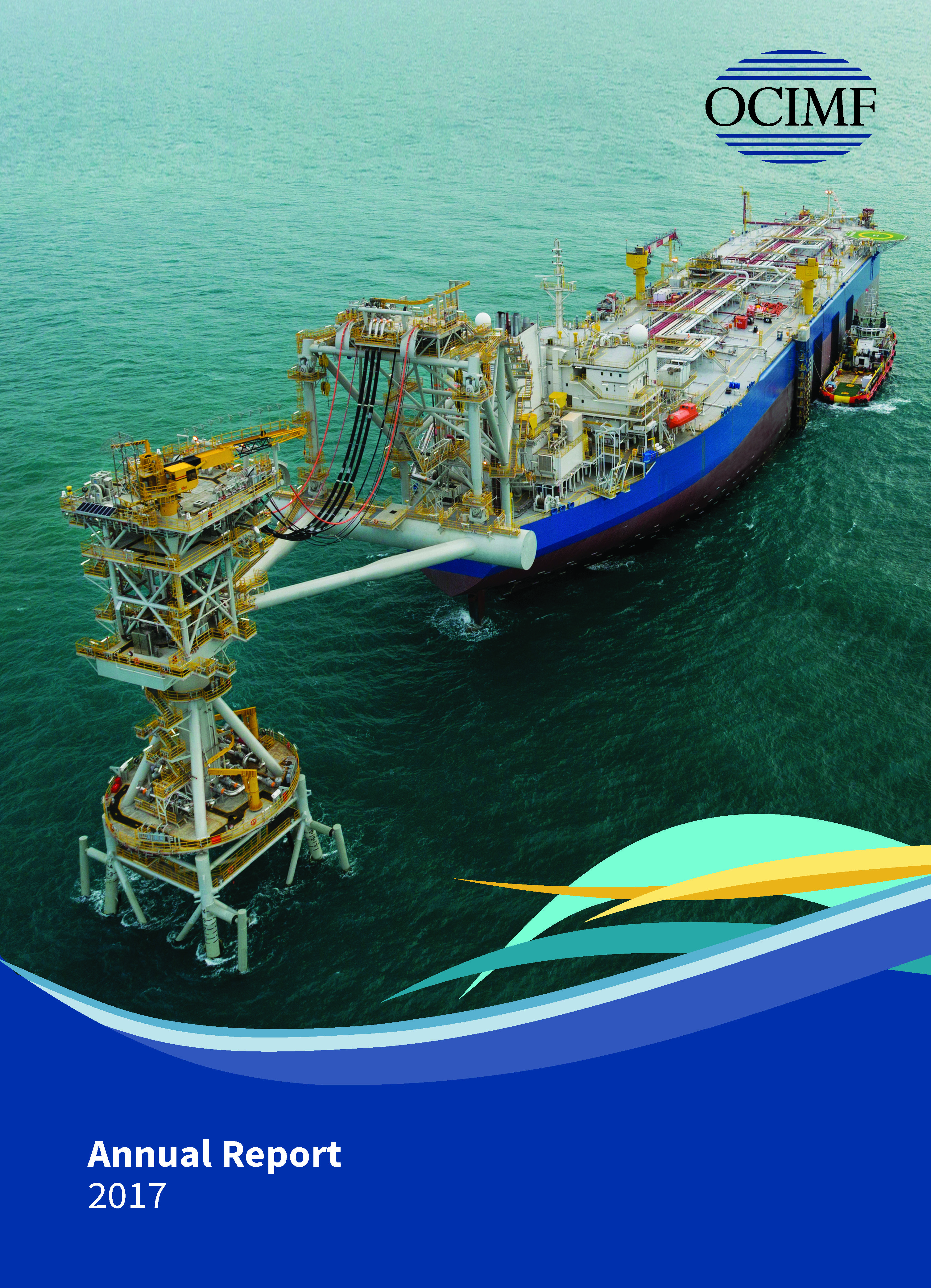
The 2017 annual report is now available.
Download the OCIMF 2017 Annual Report
If you would like to receive a hard copy please email
Mooring Equipment Guidelines: an update
The start of 2017 has been busy and very productive for work on the new Mooring Equipment Guidelines 4th Edition (MEG4).
There have been monthly meetings of all the working groups, as well as intercessional work and a joint meeting in February. This has ensured that progress has kept up with work at the IMO Ship Design and Construction (SDC) Sub-committee and the Marine Accident Investigation Branch (MAIB) investigation into the Zarga incident.
Now that the draft consultation report on the Zarga incident has been considered, and the IMO SDC have completed their own regulation and guidelines proposals, the MEG4 working groups can concentrate on finalising the content and making sure it aligns with these other industry activities.
The major changes in this draft include:
- Significantly enhanced guidance on the testing, selection, inspection and maintenance of mooring lines.
- Expanded guidance on human factors, the mooring management plan and a new line management plan.
- Standardised definitions for rope strength terminology.
- Clarification on the interaction with other industry standards (ISO, PIANC, etc) on equipment and deck structural strength, and jetty design.
The next milestone is the April meeting of the MEG4 Steering Group ahead of PTC 86 in Houston. This will be the first opportunity for the steering group and PTC members to review the major changes and is the first step in the final review and approval stage.
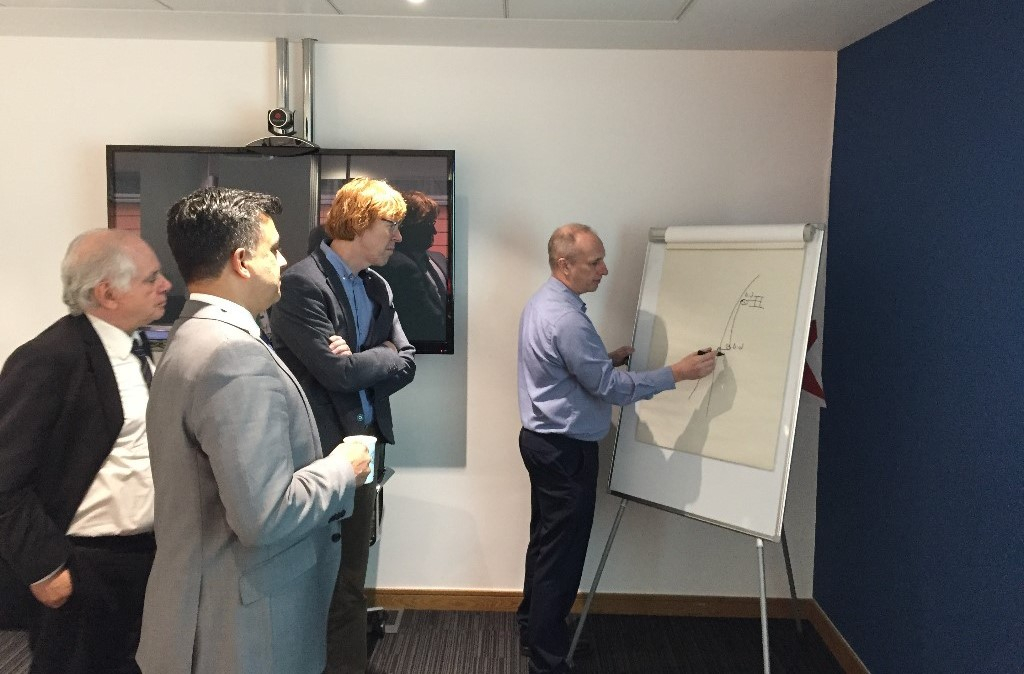
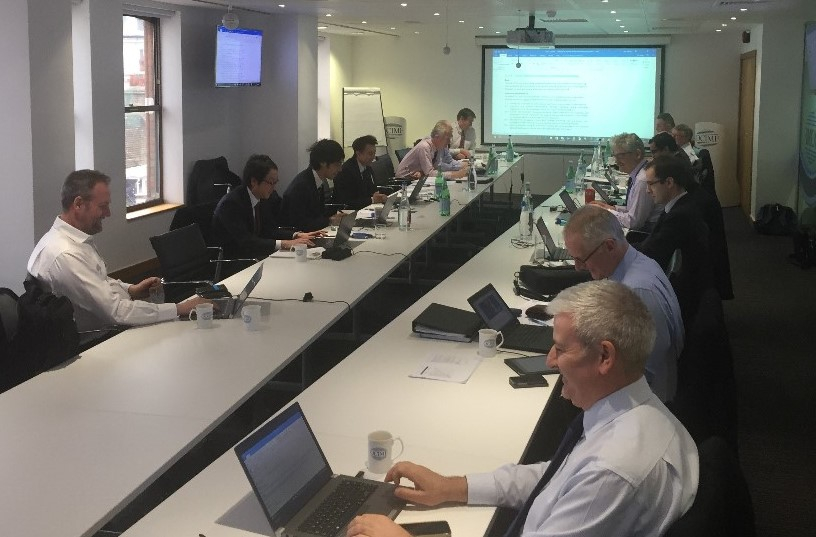
Human Factors in Mooring Design Working Group
The fifth meeting of the Human Factors in Mooring Design Working Group was held at the OCIMF offices in London on 7 March.
The meeting was attended by four members (Shell, ConocoPhillips, Primorsk and Maersk) with apologies from SeaRiver Maritime. The group was joined by representatives from the Japan Shipbuilders Association and by Janette Edmonds from The Keil Centre. Janette’s input and guidance as a Human Factors subject matter expert was invaluable.
The main aim was to progress the draft Human Factors chapter for the fourth edition of the Mooring Equipment Guidelines (MEG). The draft chapter had already progressed substantially since the last meeting and this meeting was used to gather input and achieve alignment on each section. The final draft is expected to be ready for submission to the MEG Steering Group in April.
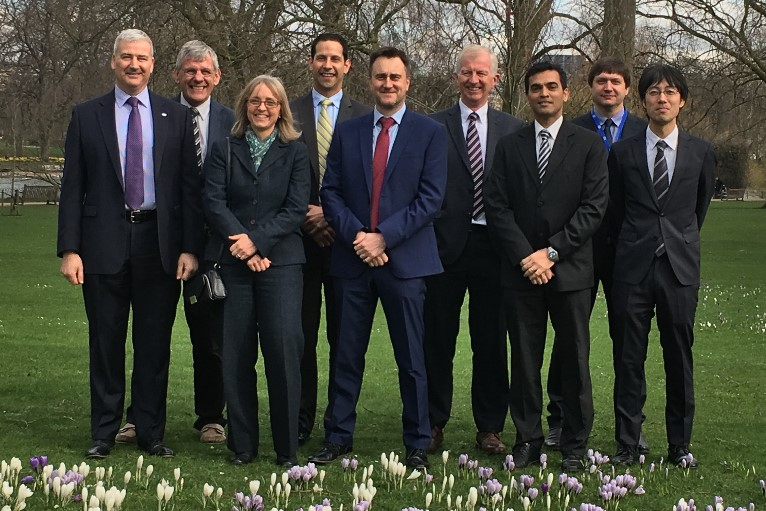
Human Factors in Mooring Design Working Group. From left to right: Rob Drysdale (OCIMF); Ian Shields (Technical Writer); Janette Edmonds (The Keil Centre); Joe Megeed (OCIMF); Carl Henrickson (Shell – Chair); Andy Dogherty (MSML - MEG SG Chair); Blaise Ferrao (Shell); Maxim Tokarev (Primorsk); Shohei Seta (Japan Shipbuilders Association). Not pictured are Nelson Bourgon (ConocoPhillips) and Shaun Pinto (Maersk) who joined the meeting virtually.
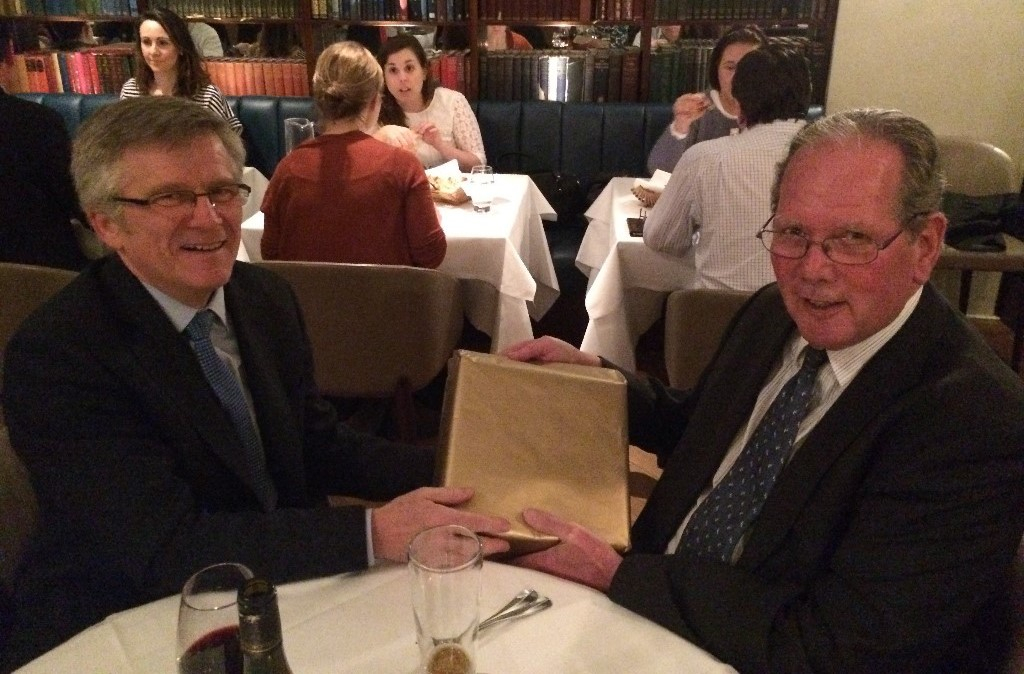
Wishing Mike O’Neill a very happy retirement after technical writing on many OCIMF publications (MEG3, TMSA2, the STS Transfer Guides, OVMSA, MTMSA, STOLGOE and many more…). On behalf of all the Members of OCIMF, Directors past and present and all in the Secretariat: thank you for all your hard work, dedication and professionalism over the years.
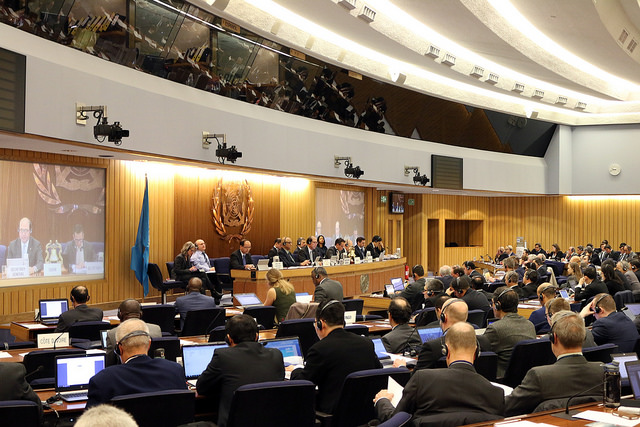
The Navigation, Communication and Search and Rescue Sub-committee © IMO
News from the IMO
The fourth session of the Navigation, Communication and Search and Rescue (NCSR) Sub-committee was held at the IMO Headquarters in London from 4–10 March.
Representatives from member companies Shell and BP joined OCIMF Deputy Director Jeremy Hudson at the Sub-committee. More than 90 papers were discussed. The main points of interest were mainly dedicated to routeing, electronic navigation, the Global Maritime Distress and Safety System (GMDSS) and Search and Rescue. Detailed technical discussions dominated procedures and many delegations had technical experts to cover the work groups.
Guidelines for the harmonised display of navigation information
The guidelines for the design and use of harmonised systems are still a work in progress. A correspondence group will continue this work intercessionally with a view to completion at NCSR 5.
Revised performance standards for Emergency Position Indicating Radio Beacons (EPIRBs)
As new satellite systems become available, e.g. Cospas-Sarsat and MEOSTAR, and new technologies emerge, e.g. Automatic Identification System (AIS) homing signals, work continues on how performance standards can align with new technologies.
Consequential work related to the new Polar Code
NCSR were asked to consider whether any further work was needed on the navigation and communications requirements in SOLAS to align it with the recent Polar code amendments. NCSR agreed to establish a correspondence group under the coordination of Germany, to further consider the subject with a view to completing by NSCR 5.
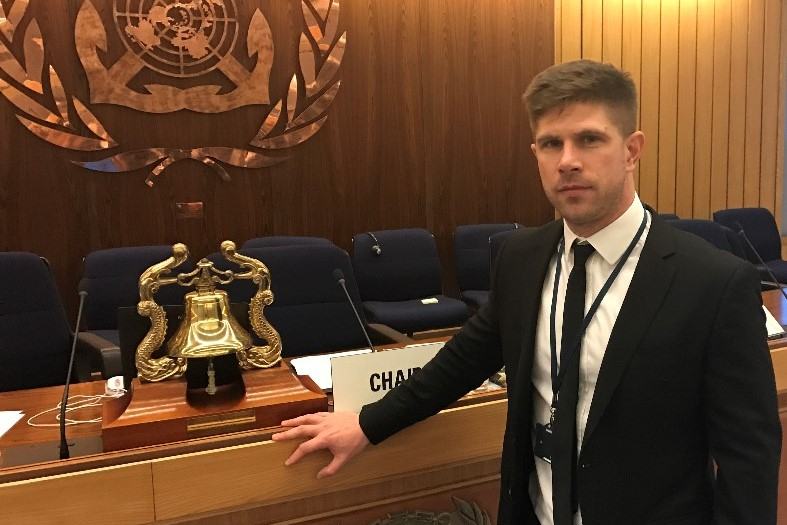
Captain Vedran Engelbreht (Shell) at NCSR.
The fourth session of the Ship Systems and Equipment (SSE) Sub-committee was held at IMO headquarters from 20–24 March.
It was a well-attended Sub-committee with over 60 papers discussed. The main points of interest were mainly dedicated to life saving, firefighting and lifting appliances, and Dynamic Positioning (DP) operations.
Guidelines for freefall lifeboats
There was agreement to separate the training of crews (via drills) and the statutory testing of equipment. The guidelines developed by the Industry Lifeboat Group (in which OCIMF participates) were supported with removal of the sections for testing of lifeboats as they are dealt with in other IMO instruments. Draft circulars will be presented to the Marine Safety Committee (MSC) 98 for approval in June 2017.
Lifting appliances and anchor handling winches
This subject again attracted significant debate during plenary and the working group. OCIMF has been actively engaged in a correspondence group for this subject and several decisions were made at this meeting on:
- Applicability of appliance: the Safe Working Load (SWL) would be used to determine the applicability of the regulation, rather than the vessel size measured by tonnage.
- Date of application of the regulation: this will be the date of installation.
- Competence requirements for operation and maintenance.
- The relevant section of SOLAS to apply the new rules (Chapter II-1).
The correspondence group will continue work and report at SSE5.
DP guidance
The work of the correspondence group on Dynamic Positioning Guidance was approved with a minor amendment relating to DP verification documents, which do not have to be issued and therefore reference to the initial survey date is more appropriate. These new non-mandatory guidelines apply to new vessels from a date to be decided by MSC. The existing MSC.1/circ.645 will be retained and remains valid for existing vessels.
Any members or OCIMF committees interested in the areas that correspondence groups are working in are encouraged to participate, as practical mariner input is always appreciated. Please contact Jeremy Hudson for details at
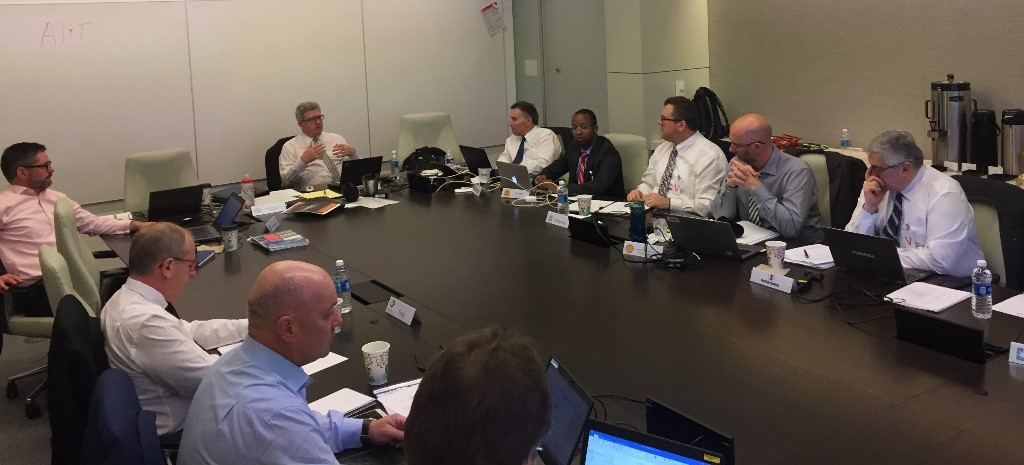
Marine Technical Sub-committee
The Marine Technical Sub-committee (MTSC) held its 34th meeting in the Woodlands, Texas from 7–9 February.
This meeting was hosted by SeaRiver Maritime and held at ExxonMobil. Nine member companies were represented and two NGOs: INTERTANKO and SIGTTO. The dinner was generously sponsored by SeaRiver Maritime.
The MTSC discussed various topics including the following:
- Cold Filter Plugging with marine fuels.
- Upcoming challenges and compliance options for the 0.5% Global Sulphur Cap.
- Continued use of drones and Remotely Operated Vehicles (ROVs).
- Ballast Water Management and compliance options.
The MTSC is grateful to the United States Coast Guard for dialling into the meeting to discuss compliance options and to listen to operational experiences from OCIMF members.
The MTSC also approved two information papers that will now proceed further to the General Purposes Committee (GPC) for their review, comment and approval before entering the next stage of the publication process.
Critical Spares Process
A guidance paper for ship operators and TMSA auditors that will be a useful tool to determine the need for spare parts related to critical systems, and should ensure consistency across the industry. The paper will not be prescriptive and will aim to ensure accountability for the ship operator to carry out the appropriate due diligence when assessing critical systems. The paper will not identify or recommend any particular critical spare parts for any vessel or vessel type.
VOC Emissions
This information paper gives guidance on issues related to the management of VOC emissions from cargo systems on oil tankers. The paper will address technical considerations for the selection and installation of vapour control systems. It will also discuss processes to manage emissions during cargo operations.
The MTSC is currently made up of representatives from nine companies: Chevron, Phillips 66, Shell, ExxonMobil, Total, BP, Statoil, Maersk Oil and Sonangol. If your company is interested in becoming a member of this sub-committee please contact OCIMF Technical Adviser (Engineering) Joe Megeed at
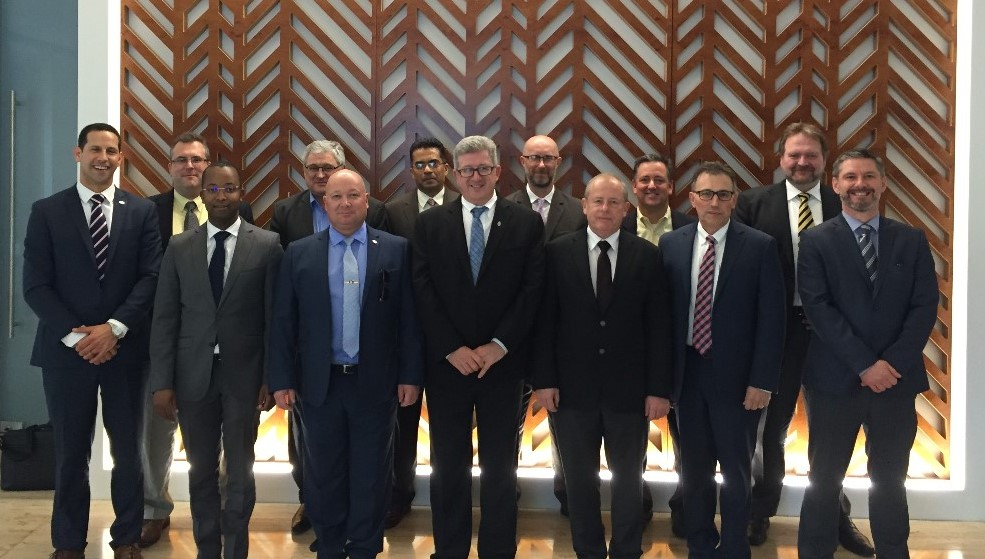
Marine Technical Sub-committee. From left to right: Joe Megeed (OCIMF); Brian Blowers (Phillips 66); Cataleco Luciano (Sonangol); Dragos Rauta (INTERTANKO); Bobby Steele (SIGTTO); Luis John Peter (Maersk Tankers); Chair David Wall (Chevron); Mike Davison (Shell); Laurent Bianchi (Total); OCIMF Executive Committee Guest - John DeRose (Phillips 66); Bob Cutrona (ExxonMobil); Fred Adolfsen (Statoil); Nick Ryan (BP). Not pictured: Vice Chair Krystyna Tsochlas (Phillips 66); Ahmer Saeed (Shell).
OVID Focus Group
The 14th meeting of the OVID Focus Group took place from 8-9 March at the ConocoPhillips offices in Houston, Texas.
Discussions included:
- Inspector accreditation, compliance and ethics.
- Offshore Vessel Inspection Questionnaire (OVIQ) report quality.
- Approval of revisions to the OVIQ and Mobile Offshore Drilling Unit (MODU) question sets.
- Revision of the Offshore Vessel Particulars Questionnaire (OVPQ) to meet OCIMF member needs.
- Development of a working group to begin revision of the Offshore Vessel Management Self Assessment (OVMSA).
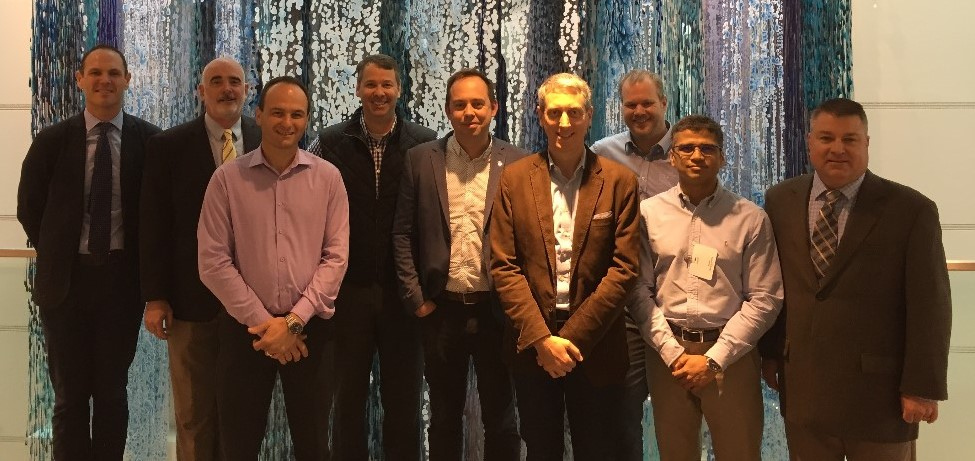
OVID Focus Group. From left to right: Lambros Klaoudatos (BP); David Vaughn (ExxonMobil/SeaRiver); Mark Aravidis (Woodside); Scott Futcher (ENI); Aaron Cooper (Chevron); Matthieu Bougeant (Total); Frank Nyheim (Statoil); Ramit Gangopadhyay (Shell); Kris Kallaway (ConocoPhillips).
OVID User Group
The 13th meeting of the OVID User Group took place on 7 March at the ConocoPhillips offices in Houston, Texas.
The main part of the meeting was open to members, inspectors and operators to give feedback on OVID for review at the OVID Focus Group meeting.
Further discussions included:
- Status of the OVID programme from 2010 to 2016, including inspection numbers, report download numbers, etc.
- Update on recent developments, i.e. the OVID Programme Recipients and OVID Vessel Inspection Request platform.
Floating Systems Group
The 14th meeting of the Floating Systems Group (FSG) took place from 28 February to 1 March at Chevron’s offices in Houston, Texas.
Discussions included:
- Final amendments to the F(P)SO Cargo Management Guidelines (also known as CaTCHMaG).
- Development of a working group to revise the Guidelines on the marine assessment of F(P)SOs
- Ballast Water Management on FSUs and F(P)SOs.
The following documents were also discussed and have been added to the list for future development:
- An information paper on heading control and station keeping for F(P)SOs.
- A management self assessment for F(P)SO operators.
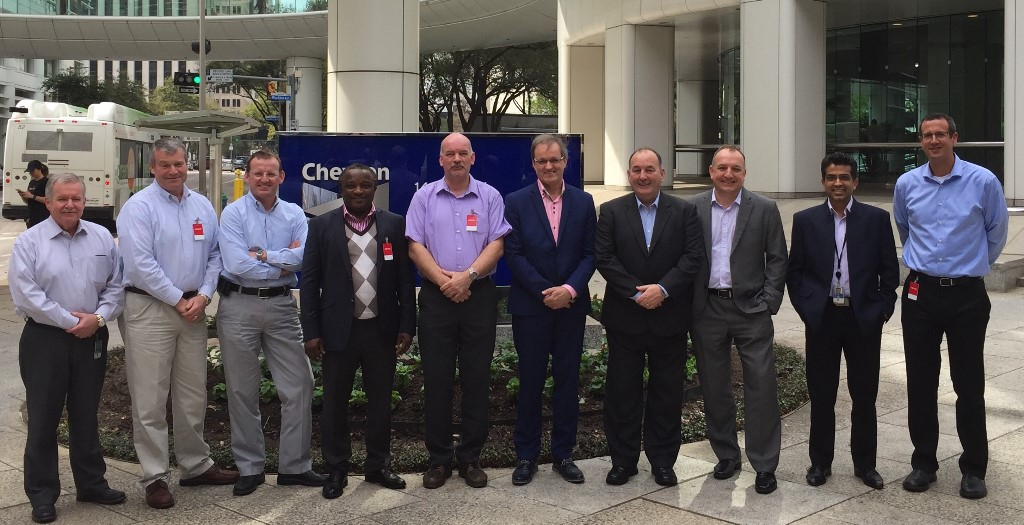
Floating Systems Group. From left to right: Brian McGaughrin (Chevron); Don Lebreux (ExxonMobil/SeaRiver); Kris Burant (Chevron); Thomas Siewe (Total); Sebastian Gerrits (SBM); Hielke Brugts (Bluewater); John Reid (Shell); David McCartney (Shell); Vineet Plaha (Chevron); Kai Christensen (BP).
CO2 Task Force
A virtual meeting of the CO2 Task Force was held on 28 February.
This task force was set up by the Executive Committee (ExCom) in 2016 to consider how OCIMF might engage in the debate on CO2 emissions in shipping. This was the group’s fifth meeting and the principal aim was to consider information gathered from industry since the initial meeting. The task force will develop recommendations for the ExCom on how OCIMF should proceed on this important topic.
Members from Shell, BP, IMT, Phillips 66 and Chevron participated and excellent progress was made. It is expected the recommendations will be finalised in good time for submission to the next ExCom meeting in May.
OCIMF Technical Group
The 31st meeting of the OCIMF Technical Group took place at the OCIMF offices on 14 March.
The group discussed the following programme developments:
- Europe Barge Particulars Questionnaire (BPQ) template changes.
- South and Central America Barge Inspection Questionnaire (BIQ) and BPQ template changes.
- Web services token authentication.
- Decommissioning of the FTP server.
- Move to the new API endpoint.
- Issue of withdrawn inspections.
- Update on SIRE programme security.
The next OCIMF Technical Group meeting will take place in September 2017 at OCIMF’s offices. OCIMF members are asked to encourage their IT personnel to take part in these meetings.
Contact Aziz Benbelkacem at a
SIRE New Inspector courses: register early
Submitting member sponsors are reminded to submit online applications to OCIMF as early as possible.
Venues are booked three months before the planned course date and courses may be cancelled if numbers are low. Register early to avoid disappointment.
| 4–6 April | Houston, USA | CAT3NA: for candidates who will inspect in the North America region Registration closed |
| 24–26 April | Argentina | CAT3SA: for candidates who will inspect in the South America region Closing date for registration: 12 April |
| 8–12 May | London, UK | |
| 12–16 June | Houston, USA | CANCELLED DUE TO LACK OF CANDIDATES |
| 16–20 October | Singapore | |
| 27 November – 1 December | London, UK |
OVID New Inspector courses
The following OVID New Inspector course has been updated.
20–22 September in the Far East
The location will be Singapore.
For a full list of OVID New Inspector and Refresher courses, please see our website at www.ocimf-ovid.org.
Queries about courses or requests for enrolment can be sent to
OVID Accreditation FAQs: www.ocimf-ovid.org/FAQ.
